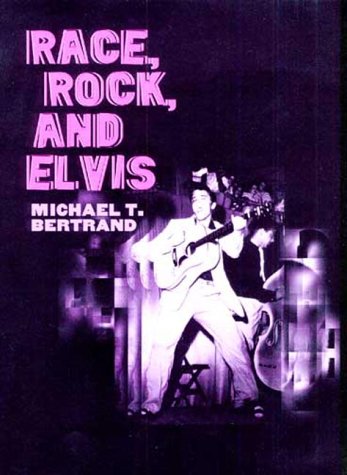In "Race, Rock, and Elvis", Michael T. Bertrand contends that popular music, specifically Elvis's brand of rock 'n' roll, helped revise racial attitudes after World War II. Observing that youthful fans of rhythm and blues, rock 'n' roll, and other black-inspired music seemed more inclined than their segregationist elders to ignore the color line, Bertrand links popular music with a more general relaxation, led by white youths, of the historical denigration of blacks in the South. The tradition of southern racism, successfully communicated to previous generations, failed for the first time when confronted with the demand for rock 'n' roll by a new, national, commercialized youth culture. In a narrative peppered with the colorful observations of ordinary southerners, Bertrand argues that appreciating black music made possible a new recognition of blacks as fellow human beings. Bertrand documents black enthusiasm for Elvis and cites the racially mixed audiences that flocked to the new music at a time when adults expected separate performances for black and white audiences.
He describes the critical role of radio and recordings in blurring the color line and notes that these media made black culture available to appreciative whites on an unprecedented scale. He also shows how music was used to define and express the values of a southern working-class youth culture in transition, as young whites, many of them trying to orient themselves in an unfamiliar urban setting, embraced black music and culture as a means of identifying themselves. By adding rock 'n' roll to the mix of factors that fed into civil rights advances in the South, "Race, Rock, and Elvis" shows how the music, with its rituals and vehicles, symbolized the vast potential for racial accord inherent in postwar society.
- ISBN10 0252025865
- ISBN13 9780252025860
- Publish Date 1 August 2000
- Publish Status Out of Print
- Out of Print 10 July 2009
- Publish Country US
- Imprint University of Illinois Press
- Format Hardcover
- Pages 352
- Language English
